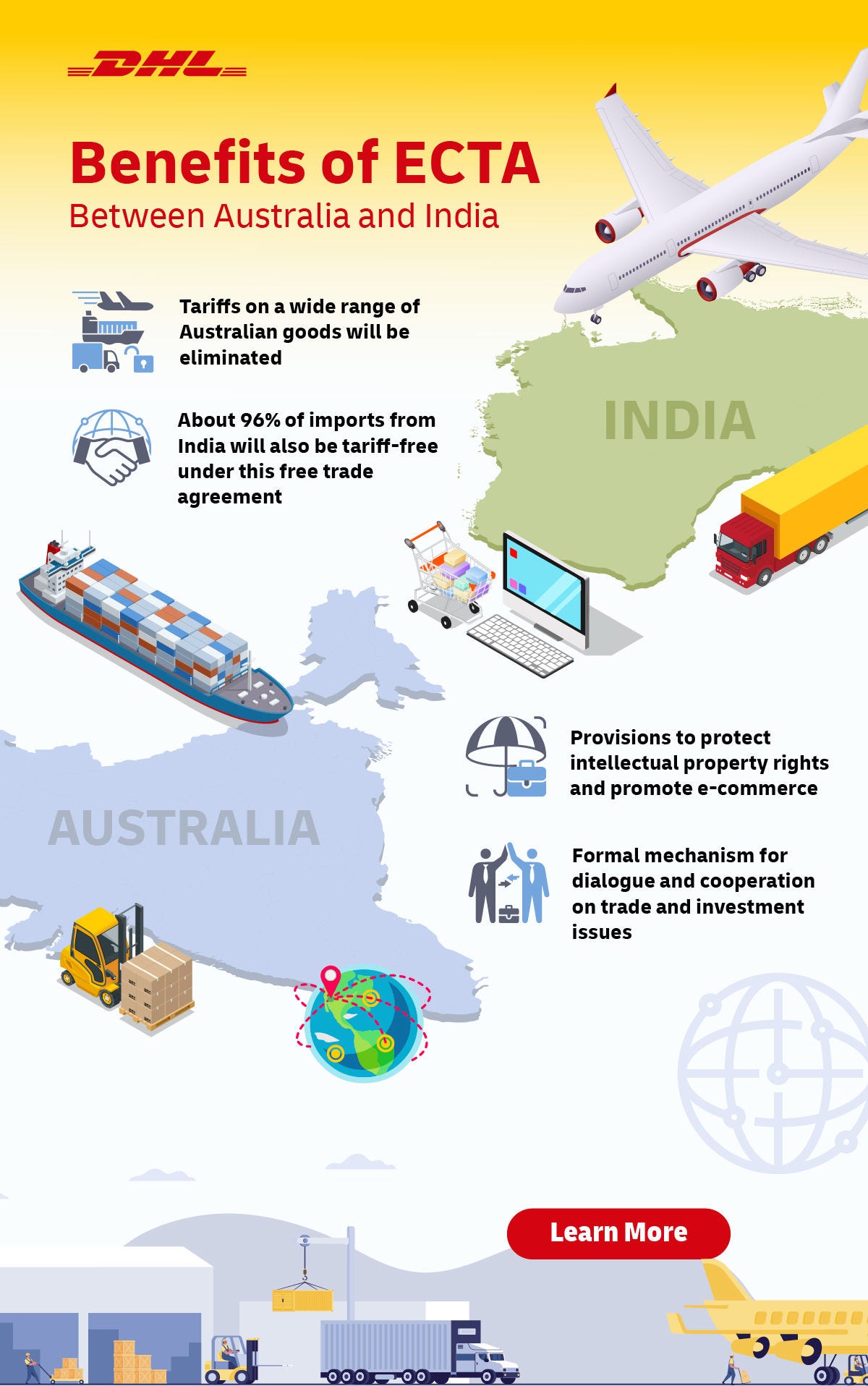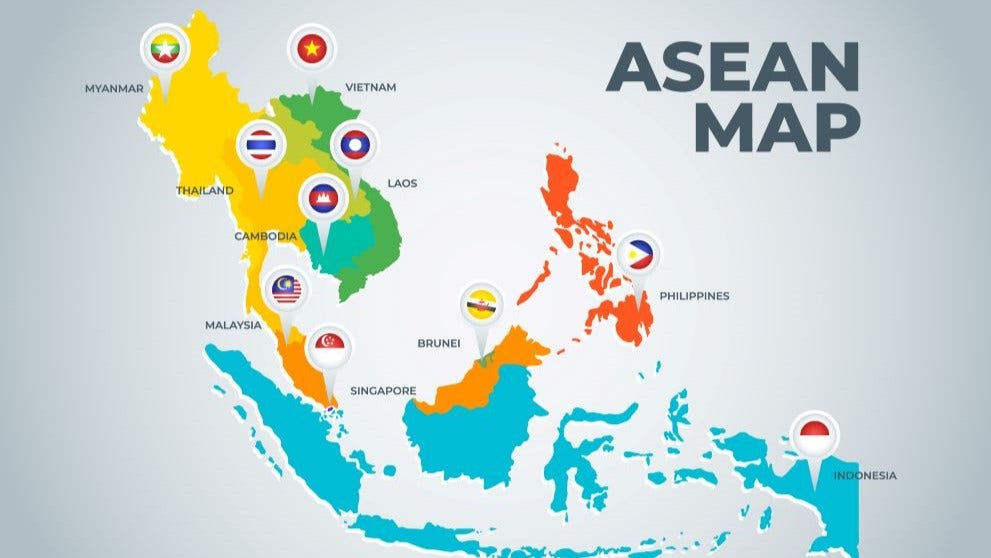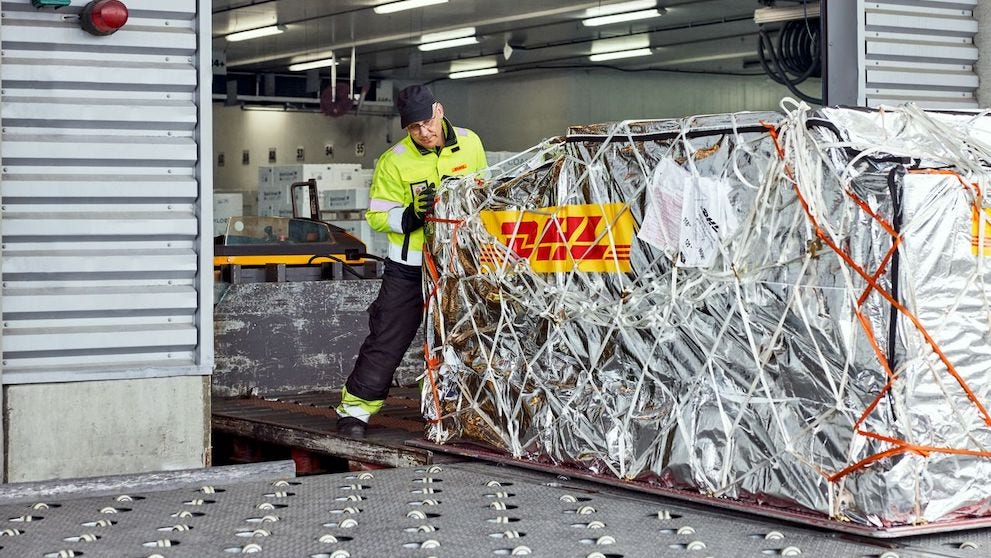
Australian businesses of all industries and sectors stand to benefit significantly from the Australia-India Economic Cooperation and Trade Agreement (ECTA). Discover how the ECTA can help your business grow, thrive, and stay competitive in today’s economy.
In December 2022, the Australia-India Economic Cooperation and Trade Agreement (ECTA) entered into force. It offers a range of benefits to Australian businesses looking to expand export opportunities to India and increase imports from India to Australia. This free trade agreement (FTA) comes at a time when the Indian economy is rapidly growing, providing a significant market for Australian goods and services businesses seeking out cross-border trade opportunities.
If you are an Australian business owner wondering how the ECTA trade deal can help you grow your business, look no further. Read on to learn more about this latest advancement in Australia-India economic cooperation, how it’s poised to bring ample opportunities for companies in Australia, and how DHL Express can help you make the most of its multifold benefits.
What is the ECTA between Australia and India?
As announced by the Department of Foreign Affairs and Trade (DFAT), the purpose of the Australia-India ECTA is to deepen economic cooperation between the two countries by reducing barriers to trade, opening up new markets, and promoting wider opportunities for investment.
Under the agreement, tariffs on a wide range of Australian goods will be eliminated, providing significant cost savings for Australian exporters. Some of these tariffs were removed immediately once the agreement was entered into force, whereas others will be slowly eliminated or reduced over the next few years.
About 96% of imports from India will also be tariff-free under this free trade agreement – rising to 100% over four years – giving Australian businesses greater flexibility when sourcing overseas.
The agreement also includes provisions to protect intellectual property rights and promote e-commerce, making it easier for Australian companies to operate in the Indian market and vice versa.
Another significant benefit of the ECTA is the establishment of a formal mechanism for dialogue and cooperation on trade and investment issues. This will allow Australian and Indian businesses to work together more easily to identify and address existing as well as future barriers to trade, as well as explore new opportunities for collaboration.
In sum, all of these provisions under the ECTA will help to build stronger economic ties and trade relations, benefiting both countries in the long term.
Who will benefit most from the Australia-India ECTA?
While the Australia-India ECTA benefits Australian businesses and consumers as a whole, some industries stand to benefit more than others.
Australian exports, in particular, stand to benefit significantly from the ECTA due to the elimination of tariffs on key goods, including sheep meat, wool, macadamia nuts, pharmaceuticals, and others. This not only provides cost savings for Australian export businesses but streamlines the documentation process for faster processing of goods during shipping.
The ECTA also offers benefits for Australian manufacturing businesses that import essential equipment and commodities from India. Existing Indian tariffs of up to 20% on selected consumer goods, industrial equipment, and commodities will be removed under the ECTA, allowing Australian manufacturers to remain competitive and agile on a global scale. This will also provide Australian businesses with the opportunity to expand their customer base and diversify their markets by facilitating smoother movement of goods between Australia and India.


















































